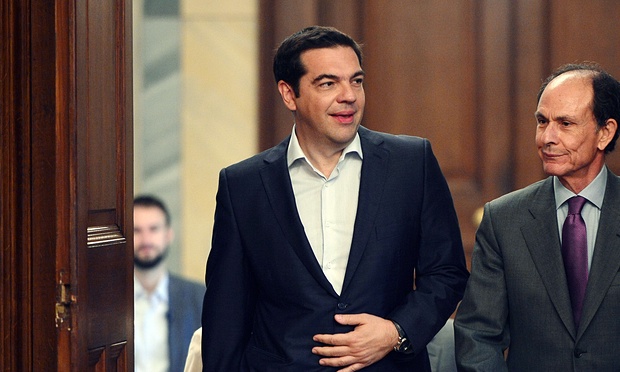European officials say Greece could abandon the Euro. Tsipras celebrates “victory of democracy” and Finance Minister Varoufakis resigns to help new negotiations.
Thousands celebrated in the streets the result of a referendum which was interpreted as a “brave choice” by Prime Minister Alexis Tsipras: 61.3% voted no to accept the EU conditions for Greece’s bailout, the no received the support of 38.7%.
More than 6 of every 10 Greeks voted in the referendum and analysts say the yes vote won mainly after the young generations of the country voted for it massively.
The negotiations will restart this week, in an even more difficult scenario. The most important move on Monday was the resignation of the Finance minister of the Greek government, Yanis Varoufakis.
His “absence” in the future meetings with the Euro Grupo, could be “potentially helpful to him [Prime Minister Tsipras] in reaching an agreement. For this reason I am leaving the Ministry of Finance today”, he said in the statement “Minister no more!”, posted on his blog.
He also argued that Greece’s referendum “will stay in history as a unique moment when a small European nation rose up against debt-bondage (…) the splendid NO vote be invested immediately into a YES to a proper resolution – to an agreement that involves debt restructuring, less austerity, redistribution in favour of the needy, and real reforms.”
 Alexis Tsipras arriving to a government meeting this morning, after obtaining a victory. / AFP
Alexis Tsipras arriving to a government meeting this morning, after obtaining a victory. / AFPTsipras reinforced this idea, saying that he and his government “will all continue our national effort to reach an agreement.”
REACTIONS IN EUROPE
Eurozone leaders are to meet on Tuesday evening to discuss the situation following the referendum result.
Chancellor Angela Merkel and French President Francois Hollande had already discussed the outcome by telephone on Sunday, and later called for the eurozone meeting.
They agreed “that the vote of the Greek people must be respected,” Merkel's office said. Merkel and Hollande will meet for talks in Paris on Monday.
Jeroen Dijsselbloem, head of the Eurogroup eurozone finance ministers said the referendum result was “very regrettable for the future of Greece.”
EU foreign policy chief Federica Mogherini tweeted that the vote meant “painful days for all those that believe in a united Europe”
Italian Foreign Minister Paolo Gentiloni said: “Now it is right to start trying for an agreement again. But there is no escape from the Greek labyrinth with a Europe that's weak and isn't growing.”
Although Greece seems to be near the Euro exit, the odyssey is far from over, analysts think.
EVANGELICALS: “PRAY FOR THE COUNTRY”
Last week, the Greek Evangelical Alliance asked believers in Europe and the rest of the world to pray for this “very critical period”, one of the prayer points being “evangelical churches, as they try to be agents of hope offering acts of mercy to people in need.
GEA representatives George Kaloterakis and Fotis Romeos said the evangelical organistation “does not take sides in political matters, as this could bring about divisions in the body of Christ”. The statement added that “Greece's participation in the European Institutions has so far been a real help and an agent for the promotion of religious liberties in our country”,

Las opiniones vertidas por nuestros colaboradores se realizan a nivel personal, pudiendo coincidir o no con la postura de la dirección de Protestante Digital.
Si quieres comentar o